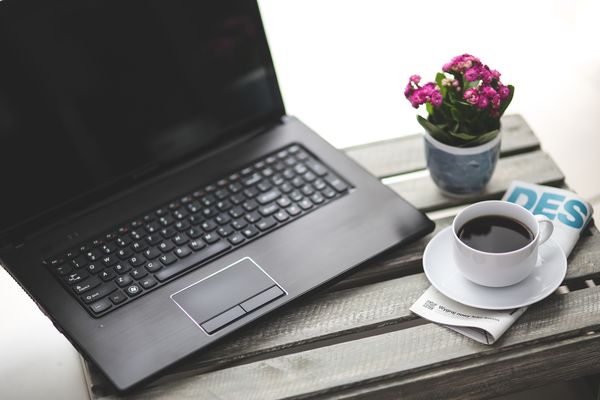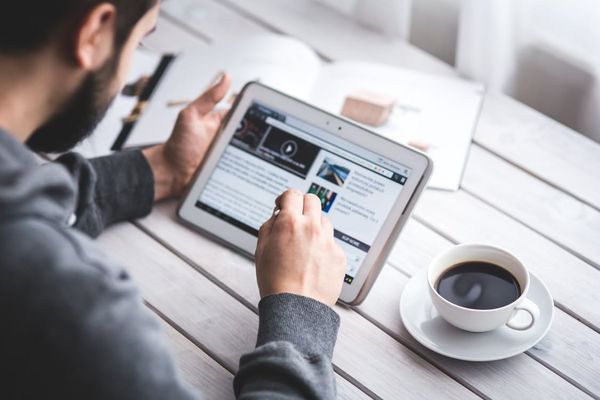Working from home and freelancing is a dream for most people. The ability to commute from bed to desk in the study is something that so many crave, and yet it comes with a set of pitfalls that are usually not considered. Working freelance on your own time in your own home can make you comfortable, but being self-employed means you have some financial paperwork headaches that you need to be aware of, and you need to know how to fix them.

Working for a large company – or even a small one – can give you a certain level of financial security. You may hate your job, or hate the fact you are working for someone else and therefore someone who earns more than you do, but the financial security you get being a part of a company is great. Being bored at work is usually where people think that working for themselves is a great idea. When you think of the financials of going freelance, you can think about the fact you can cut out the costs of commuting and work clothing. Switching to a career where you can work from home at your own time comes with its own set of costs. Setting up a home office is difficult as it is, but you also have to think about the benefits a company would have given you and set them up yourself. So, what should you be looking at when you consider switching to freelancing?
Savings
. Freelancing has one huge benefit, and that is the savings you can make on a daily basis. You no longer have to put gas in the car for that long commute every day. There’s no monthly travel pass that you have to put money into, either. You can literally cut out that part of your life. Saving your commute also means you have a little extra time to work, which is a blessing when you earn for the work you put in rather than the set hours a day.

Money
. Before you decide to leave your steady job with the benefits you’ve been enjoying, take a long hard look at your bank statement. Do you have savings already? Could you support yourself until a wage starts coming in again? Moving into freelance work can be slow at first, so you need to make sure that you have enough money as a back up to cover your resources. Ideally, having enough for three months of bills, mortgage or rent payments and food is a good start!
Stability.
The freelance work you are planning to do will have its own income variability. As many freelance jobs are contracted, you need to build up a solid relationship with clients so you get a regular work stream. Embrace the fact your income will vary depending on the time of year, and plan ahead of it.
Planning
. Speaking of planning, have you thought about those benefits you will lose? That pension that you had been paying into will likely still be there, but on a freeze until you start paying into it again. You cannot afford not to keep up a pension, and while you could draw from your existing retirement plan and move it into a private account, you should use a 457 calculator for this first. Without the right retirement plan in place, you are going to plan to fail. You need to think of what you will do after you stop work.
Insurance
. Employers tend to make provisions for their employees when it comes to health insurance. Once you go freelance, you need to consider arranging your own health insurance as your employee provision will stop. While it may be difficult to think of at first, you should avoid going for the cheapest option. Health insurance payments ideally should be a part of the savings that we mentioned earlier. Checking out health insurance calculators like this one could give you an idea of what you should be spending each month on the best health insurance for your circumstances.

Finances.
For some, self-employment is the easiest financial option. You absolutely should consider getting yourself an accountant for tax season so you do not have to handle your taxes and financials alone. Keeping accounts and getting them right every year is not easy and it is not something you want to make any mistakes on. Searching for a competent and affordable accountant should be high on your priority list so that you can avoid looking at a huge tax bill that you do not need on your plate.
Costs.
You will not have a commute to worry about, but you will still have overheads to consider. Heating, as well as your utilities can and will go up. It may not even be by much, but those costs will add up when you are now away from the office. You can make small changes to the home to make it more insular and save money on the heating bills, but overall the rise in your utilities will be subtle.

Office. Image Source.
Setting Up
. Once you have decided to go ahead with freelancing, you need to set up a home office. Hopefully you have space already to convert, but if not, you can work anywhere in the home that is comfortable for you. If you do have a space at home to convert, you have to factor in your costs of a computer, printer, equipment like stationery etc. These things can be a necessity for a home office but you have to assess what you personally need before you go ahead.
Your finances as a freelancer will vary, and there are many things you should consider before you leave your stable workplace with stable pay. There is taking risks that are smart and taking risks that are actually bad for you so do not let your freelance gamble be a bad risk. Set yourself up first so that you can feel comfortable from the outset with your working from home position.